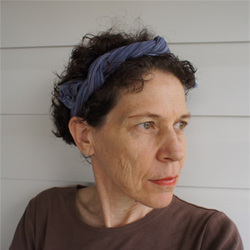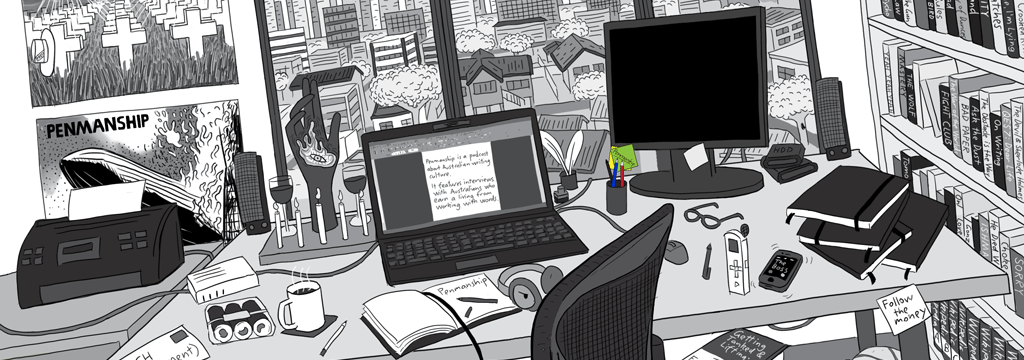Cory Taylor is an author and screenwriter.
 In May 2016, she published a book named Dying: A Memoir. As the title suggests, it will her last public writing, for Cory is dying of melanoma-related brain cancer. Structured around three essays, Cory writes of how her body has failed her since the initial diagnosis in 2005, just before her 50th birthday. While her once full life has since contracted to just two rooms – her bedroom and her living room, where she spends most of her days now – her mind remains sharp and active, and in the book she describes the arc of her narrative with vivid detail. She writes: “When you’re dying, even your unhappiest memories can induce a sort of fondness, as if delight is not confined to the good times, but is woven through your days like a skein of gold thread”. At once sad and proud, her writing in these pages is truly masterly. Readers of any age will find much to learn here, and it is difficult to imagine a finer note on which to close.
In May 2016, she published a book named Dying: A Memoir. As the title suggests, it will her last public writing, for Cory is dying of melanoma-related brain cancer. Structured around three essays, Cory writes of how her body has failed her since the initial diagnosis in 2005, just before her 50th birthday. While her once full life has since contracted to just two rooms – her bedroom and her living room, where she spends most of her days now – her mind remains sharp and active, and in the book she describes the arc of her narrative with vivid detail. She writes: “When you’re dying, even your unhappiest memories can induce a sort of fondness, as if delight is not confined to the good times, but is woven through your days like a skein of gold thread”. At once sad and proud, her writing in these pages is truly masterly. Readers of any age will find much to learn here, and it is difficult to imagine a finer note on which to close.
Cory and I live on the same street in inner-city Brisbane – Montague Road in West End – and I met her for the first time on a rainy Wednesday morning in mid June. She was propped up on the day bed in her living room, and in between occasional interruptions from friends and carers, Cory kindly allowed me to ask her a few questions about her life as a writer. There’s a bit of ambient noise in the background of the recording, as traffic rushes past on the wet street outside. But the living room itself is a wonderful sanctuary of art and literature, and despite the fact that her body is wasting away, Cory’s love for words and language burns brightly. Our conversation touches on how she decided to write about her impending death; the hardest parts of writing about dying; her early experiences working as a freelance screenwriter in the 1980s; how her PhD research into the internment of Japanese immigrants during the Second World War led to her second novel, and what she aimed to achieve by writing her final book.
Cory Taylor is an award-winning screenwriter who has also published short fiction and children’s books. Her first novel, Me and Mr Booker, won the Commonwealth Writers Prize (Pacific Region) and her second, My Beautiful Enemy, was shortlisted for the Miles Franklin Literary Award. Her most recent book is Dying: A Memoir.
Direct download | iTunes | Stitcher | Libsyn | YouTube
Timeline:
3.00 We are sitting in Cory’s living room at her home on Montague Road, West End, “full of the clutter we’ve accumulated over a long life”
4.00 Cory’s final book, Dying: A Memoir, came about as a result of her terminal illness; “reality struck” about halfway through 2015, but she didn’t know how to write about it
5.00 In conversation with her editor at Text Publishing, Penny Hueston, Cory was encouraged to write about her views and experiences on death, after Andrew Denton – also a board member at Text – started a campaign to change the laws around assisted dying, Better Off Dead
6.30 “I probably aimed for a 10,000 word essay initially, and thought that would be it”
7.00 “[Death] is very hard to write about, because I think you fall into all sorts of traps about [how] this is your own personal experience of illness. And I didn’t really want to write about illness, because I don’t read about illness”
8.00 Cory had collected a few books about death and dying that she thought “did it quite well”, including The Violet Hour: Great Writers at the End by Katie Roiphe, a collection of how famous writers dealt with their dying days, Being Mortal: Medicine and What Matters In The End by Atul Gawande, and Levels of Life by Julian Barnes
10.00 “I think we hear too much from doctors. I think the patients are more interesting, but you don’t hear a lot from them, because they’re not fit enough to write the books”
10.30 Cory wrote Dying while lying on the day bed in her living room, where this interview is taking place; its three-part structure was influenced by Levels of Life but also her experience in writing three-act screenplays
13.30 In Dying, Cory writes of a woman named Susan Addison, a woman assigned by her hospice carer, Karuna, to record conversations with the terminally ill and compile them into a book
15.00 “She became my mentor, in many ways, which was a gift; and then all of a sudden, she didn’t turn up one Wednesday”
17.00 Cory was interviewed by ABC TV for a show called ‘You Can’t Ask That’, where people were questioned on camera about taboo aspects of Australian life, including talking about death
19.00 “They’re the sort of questions that you don’t reach the end of, really; you can keep thinking about them forever”
20.00 Cory is never happier than when she is writing, or thinking about writing, or seeing the world as a writer, which began when she was inspired by a schoolteacher who was also a poet
22.30 Cory’s grandmother was a bush poet from Longreach, Queensland; her mother “scribbled a lot”, too, and her brother became a journalist
23.30 Cory eventually pursued freelance screenwriting in 1980, after finishing university; “it occurred to me that you could actually make a living, writing scripts for film and TV”
24.30 In that era, a first draft of a script was worth about $20,000; “The only problem with it was that you’d work tremendously hard and long on projects that would never get financed, and would just disappear”
25.30 In her scripts, Cory drew heavily on “the drama of my family life, my parents’ terrible marriage, and coming-of-age stories – which was rehearsal for what I eventually wrote about when I started writing fiction”
28.30 “One of the golden rules about screenwriting is to get into a scene at the latest possible moment, and get out at the earliest possible moment”
30.00 “My discipline has never been very good; I always found three or four hours in the morning were the most useful and productive times”
31.00 After screenwriting, Cory detoured into writing children’s books, when her own children were of school age
33.30 Next, Cory enrolled in a PhD in film and television at QUT, where she wrote two feature screenplays and an exegesis ; this is where she met Benjamin Law in the early 2000s
35.00 The PhD involved a lot of research into the Japanese experience of living in Australia, which led to Cory researching history in that area, including the internment of Japanese citizens during the Second World War
36.00 “It struck me as a fabulous story for fiction, and my second novel [My Beautiful Enemy] ended up being about that”
37.30 Cory found energy and inspiration from being around young and ambitious writers at QUT, including Benjamin Law, “who was so driven, and he knew what he wanted”
41.30 Cory is still sharp mentally, but her body has betrayed her, which is “just so bizarre; it’s like you’re being invaded by this alien who’s determined to do away with you”
42.30 Cory reads aloud the final paragraph of Dying, which begins: “I’ve come to the edge of words now, to the place where they falter and strain in the face of dying’s terrifying finality”
44.30 Cory showed Shin and her children a first draft of Dying, which they all found “very sad to read; I think it brought it home to them that it was real”
45.00 “In the first draft, I was a bit more harsh about certain people in the book, and then I realised that I couldn’t go out on that note. If those are your last words, you have to be quite careful”
46.00 What Cory aimed to achieve with Dying was to make an unbearable thing bearable; “basically, it was a selfish motive in one sense, but I think it has helped other people” by allowing readers to speak about death with their own families
47.30 “I just feel so lucky that I had the time to do it, and the energy at that time to pull it off”

